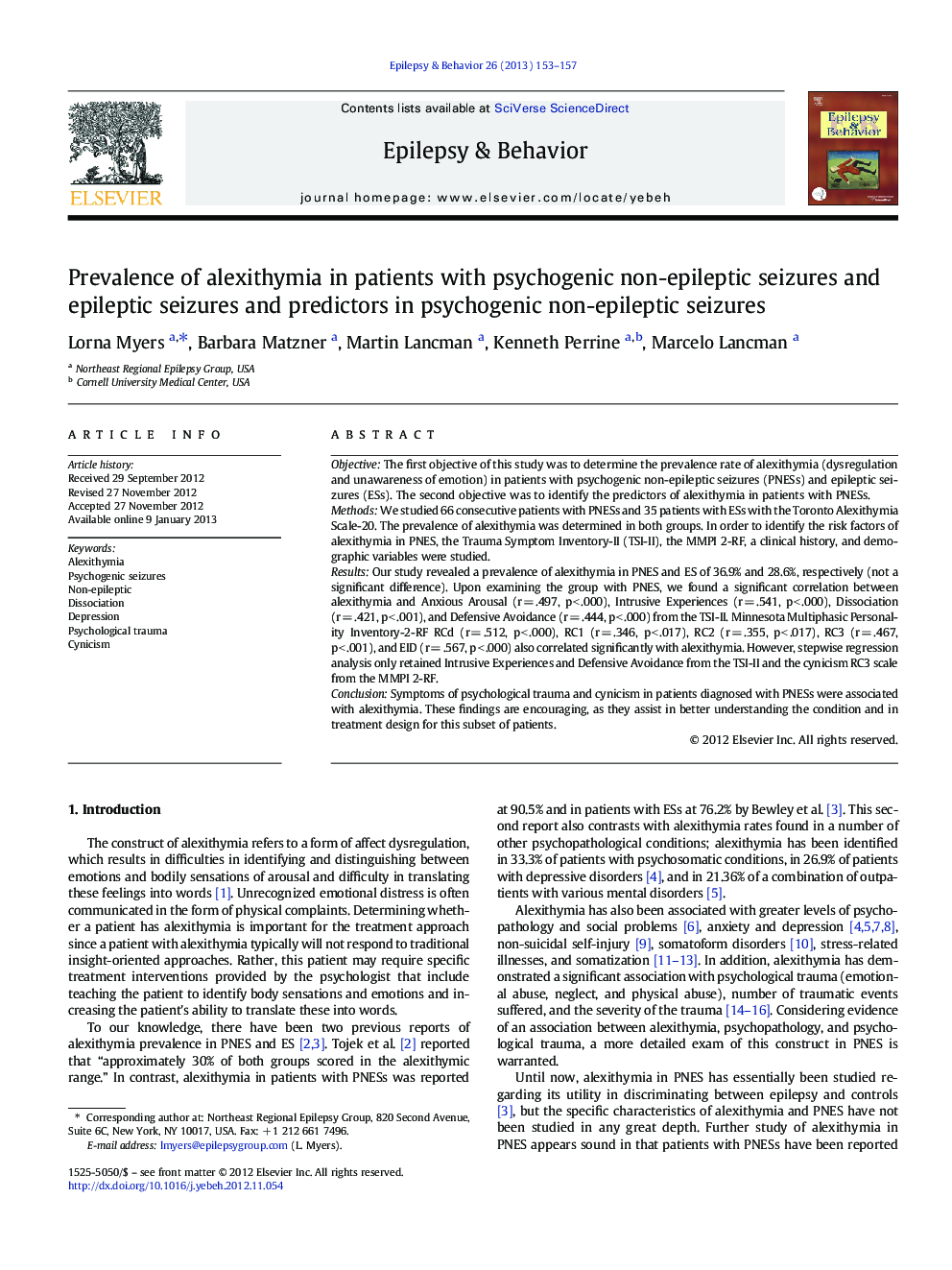| کد مقاله | کد نشریه | سال انتشار | مقاله انگلیسی | نسخه تمام متن |
|---|---|---|---|---|
| 3049719 | 1185918 | 2013 | 5 صفحه PDF | دانلود رایگان |

ObjectiveThe first objective of this study was to determine the prevalence rate of alexithymia (dysregulation and unawareness of emotion) in patients with psychogenic non-epileptic seizures (PNESs) and epileptic seizures (ESs). The second objective was to identify the predictors of alexithymia in patients with PNESs.MethodsWe studied 66 consecutive patients with PNESs and 35 patients with ESs with the Toronto Alexithymia Scale-20. The prevalence of alexithymia was determined in both groups. In order to identify the risk factors of alexithymia in PNES, the Trauma Symptom Inventory-II (TSI-II), the MMPI 2-RF, a clinical history, and demographic variables were studied.ResultsOur study revealed a prevalence of alexithymia in PNES and ES of 36.9% and 28.6%, respectively (not a significant difference). Upon examining the group with PNES, we found a significant correlation between alexithymia and Anxious Arousal (r = .497, p < .000), Intrusive Experiences (r = .541, p < .000), Dissociation (r = .421, p < .001), and Defensive Avoidance (r = .444, p < .000) from the TSI-II. Minnesota Multiphasic Personality Inventory-2-RF RCd (r = .512, p < .000), RC1 (r = .346, p < .017), RC2 (r = .355, p < .017), RC3 (r = .467, p < .001), and EID (r = .567, p < .000) also correlated significantly with alexithymia. However, stepwise regression analysis only retained Intrusive Experiences and Defensive Avoidance from the TSI-II and the cynicism RC3 scale from the MMPI 2-RF.ConclusionSymptoms of psychological trauma and cynicism in patients diagnosed with PNESs were associated with alexithymia. These findings are encouraging, as they assist in better understanding the condition and in treatment design for this subset of patients.
Journal: Epilepsy & Behavior - Volume 26, Issue 2, February 2013, Pages 153–157